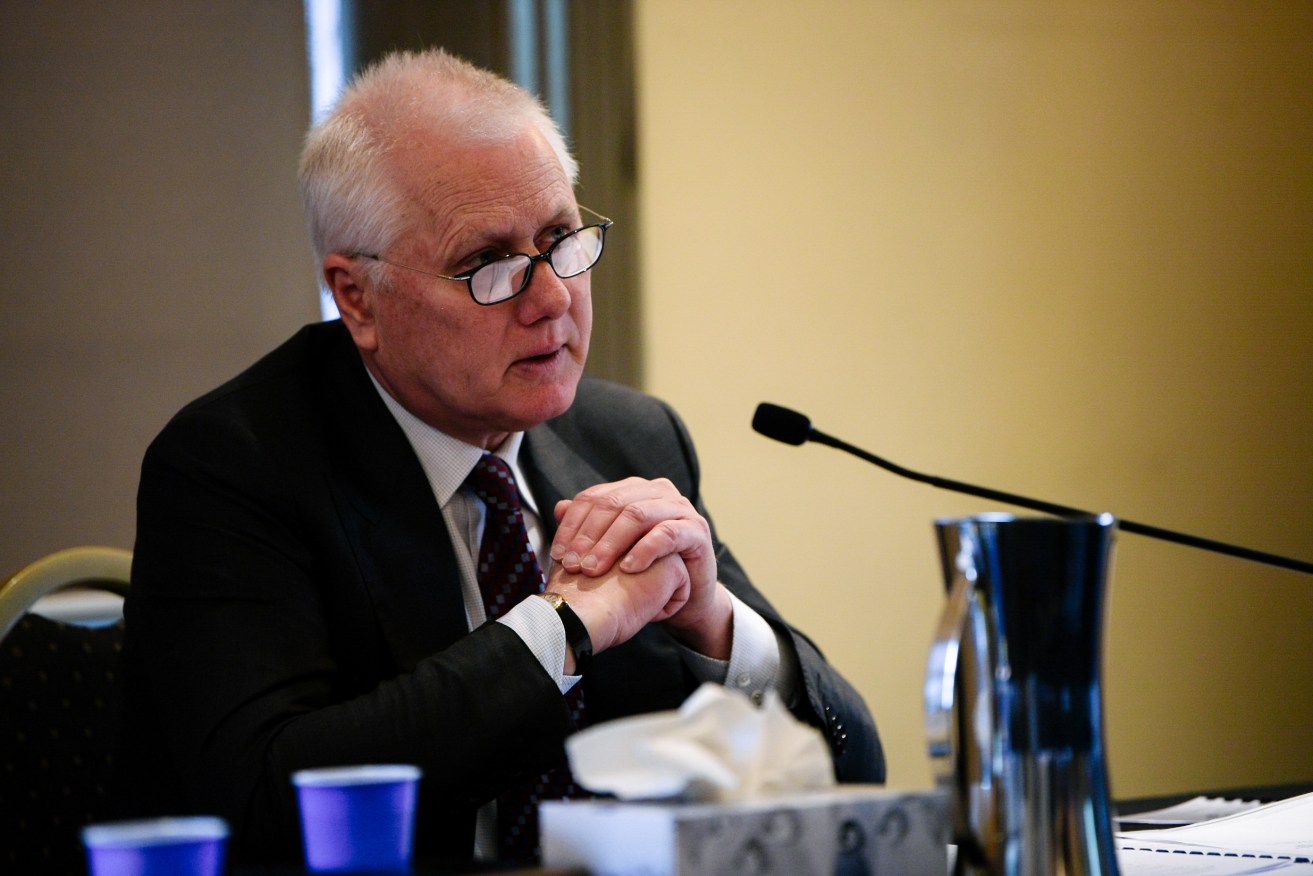CSIRO staff opt out of River Murray royal commission
Some CSIRO staff have taken a “disappointing” decision to not appear before South Australia’s Royal Commission into the Murray-Darling Basin, the inquiry has heard.

Royal Commissioner Bret Walker SC. Photo: AAP/Morgan Sette
Counsel assisting Richard Beasley told commissioner Bret Walker today that some CSIRO staff would wait for the outcome of the Federal Government’s High Court challenge to the appearance of Commonwealth employees before agreeing to give evidence.
The employees argued it was out of respect for the High Court process.
But Beasley said it was disappointing that people employed by Australia’s national science body were unwilling to give evidence about matters that were “purely science-related”.
“It’s disappointing because it doesn’t seem to me, having looked at the act creating the CSIRO, to be particularly consistent with some of the purposes for which the CSIRO was created, including giving advice on matters of scientific debate or controversy,” he said.
Beasley said it was also difficult to understand how their decision had anything to do with respecting the court process with that matter related only to the commissioner’s power to compel witnesses to appear.
“The stance taken by these people or the stance they are being directed to take is not disrespectful to the High Court, it’s certainly not respectful to the High Court and, in my submission, is irrelevant to the High Court,” he said.
The commission heard evidence today from former CSIRO research scientist Dr Matthew Colloff about his previous work on the ecological and economic benefits of environmental water in the river system.
That work included modelling the impact of various volumes of water to determine the most appropriate level to achieve particular outcomes and then comparing that to modelling conducted by the basin authority.
In his written submission ahead of his appearance, Colloff said he was unhappy with the extent of the authority’s interference throughout the course of the project.
“In particular, with the way that I felt our scientific integrity was being compromised and independence undermined,” he said in his written submission.
“We were being managed in such a way that our job became effectively a rubber-stamping of the Murray-Darling Basin Authority’s findings.”
The royal commission was established in January 2018 to inquire into the operations and effectiveness of the basin plan after widespread reports of water theft.
Its final report is due by February next year.
– AAP




